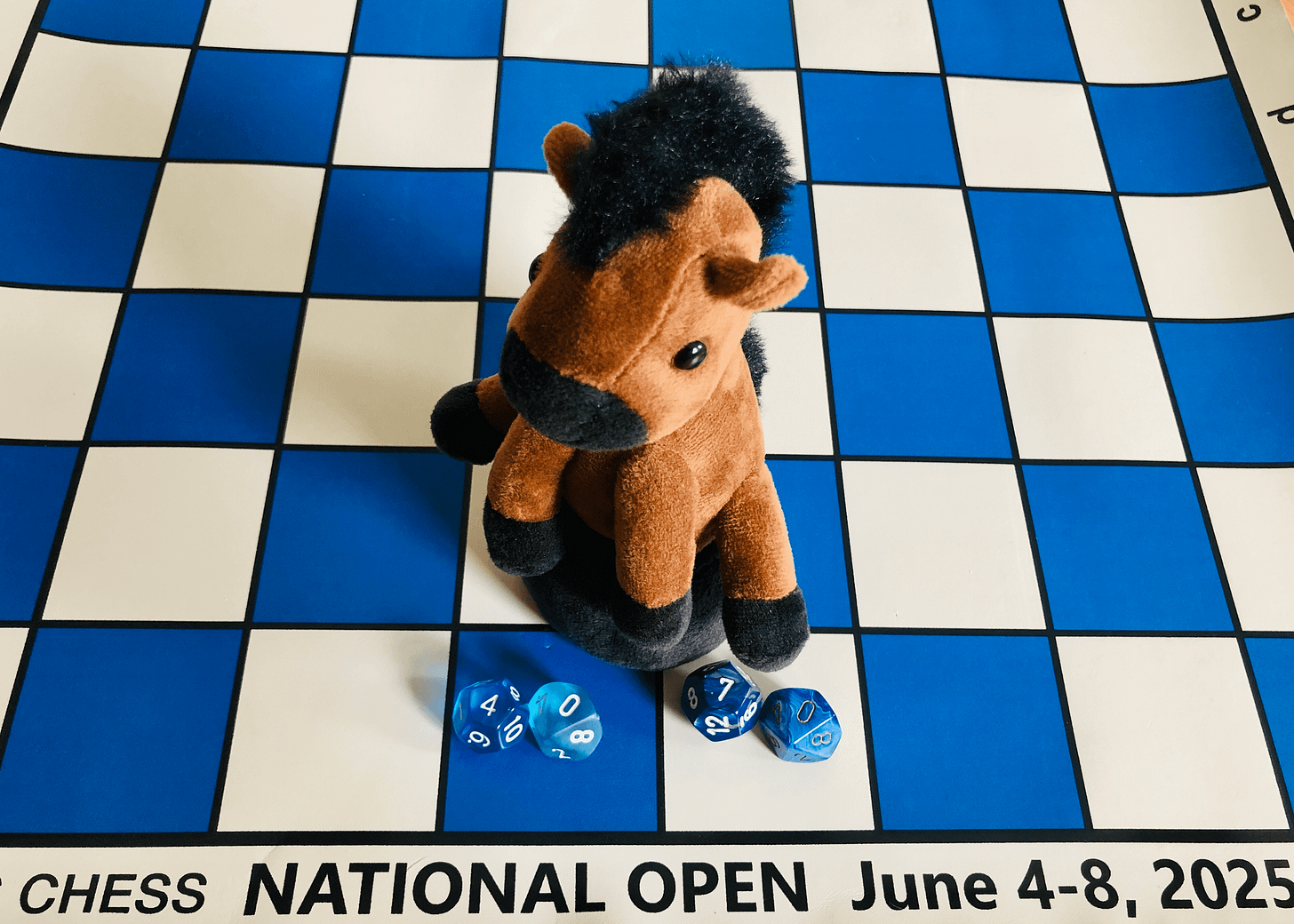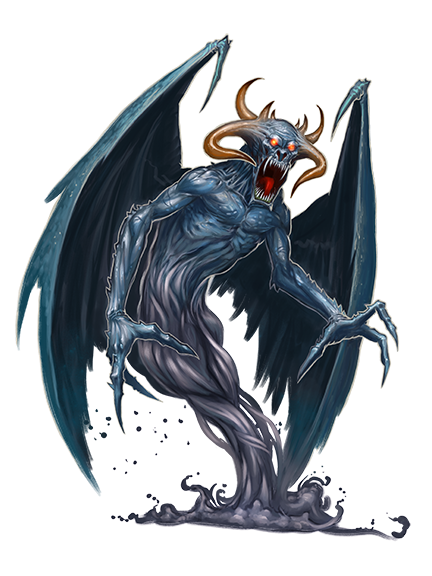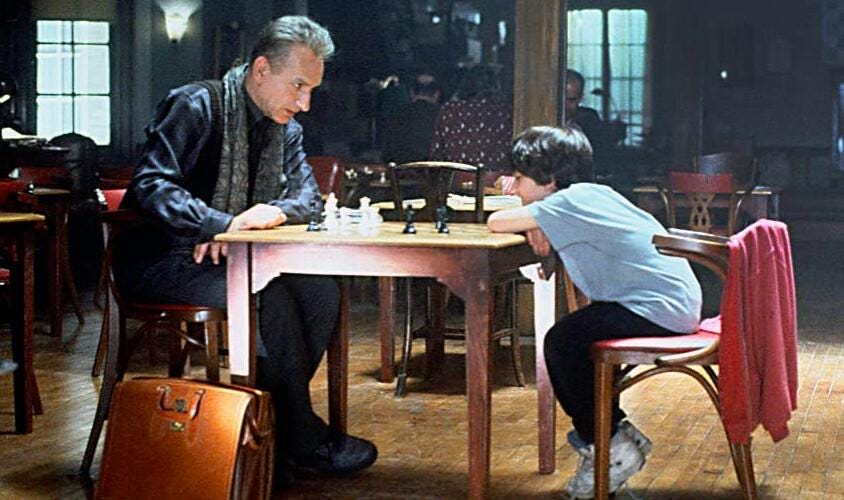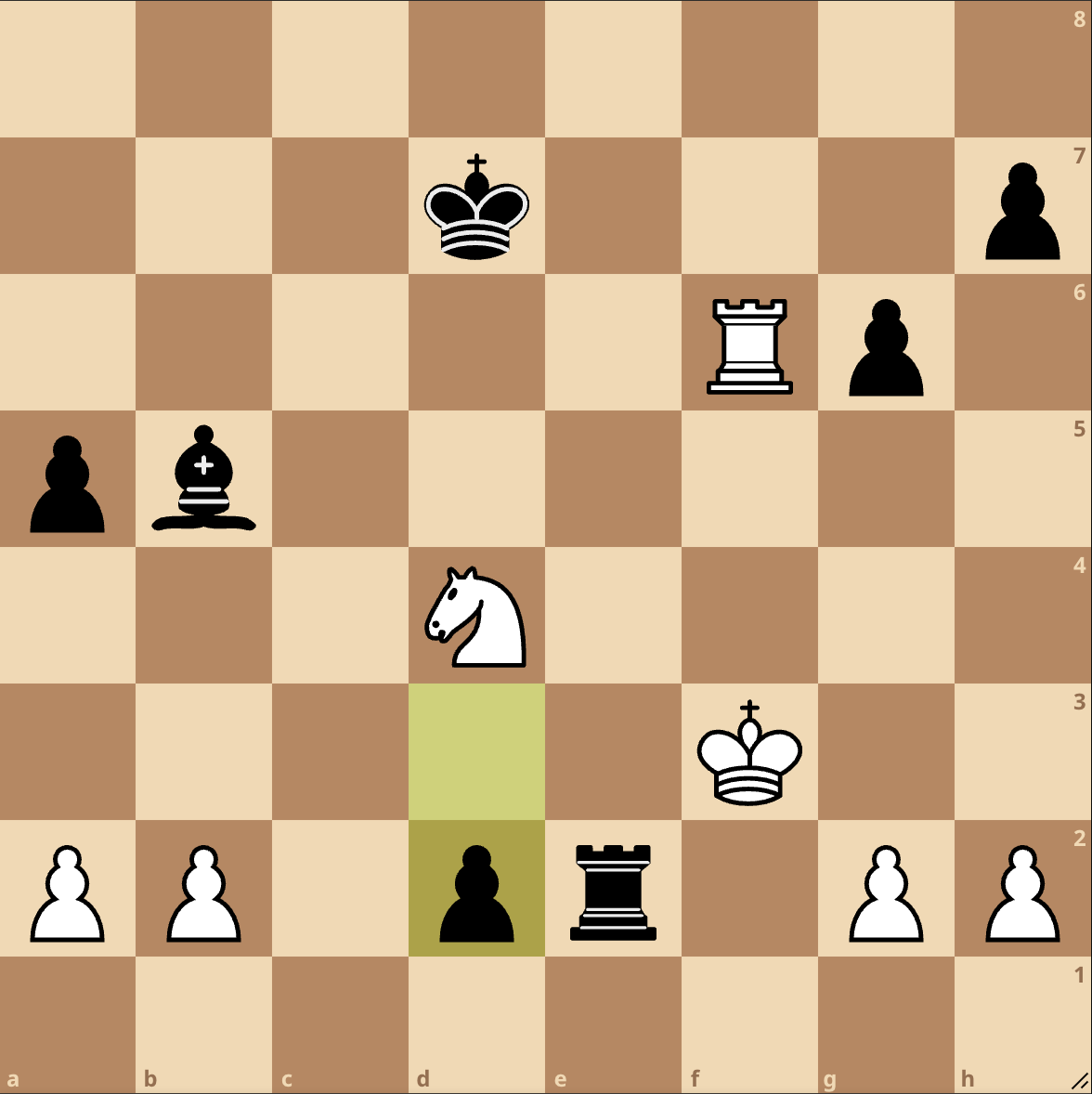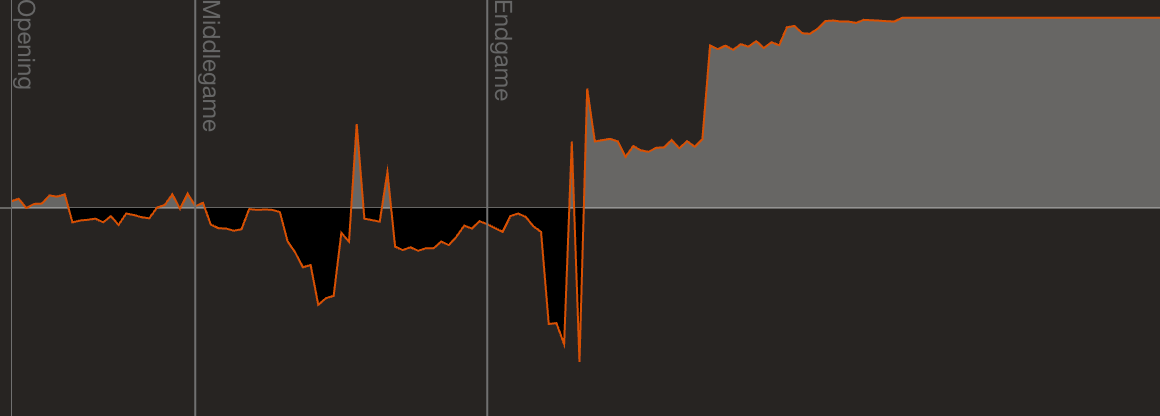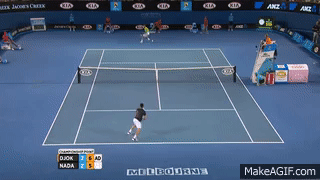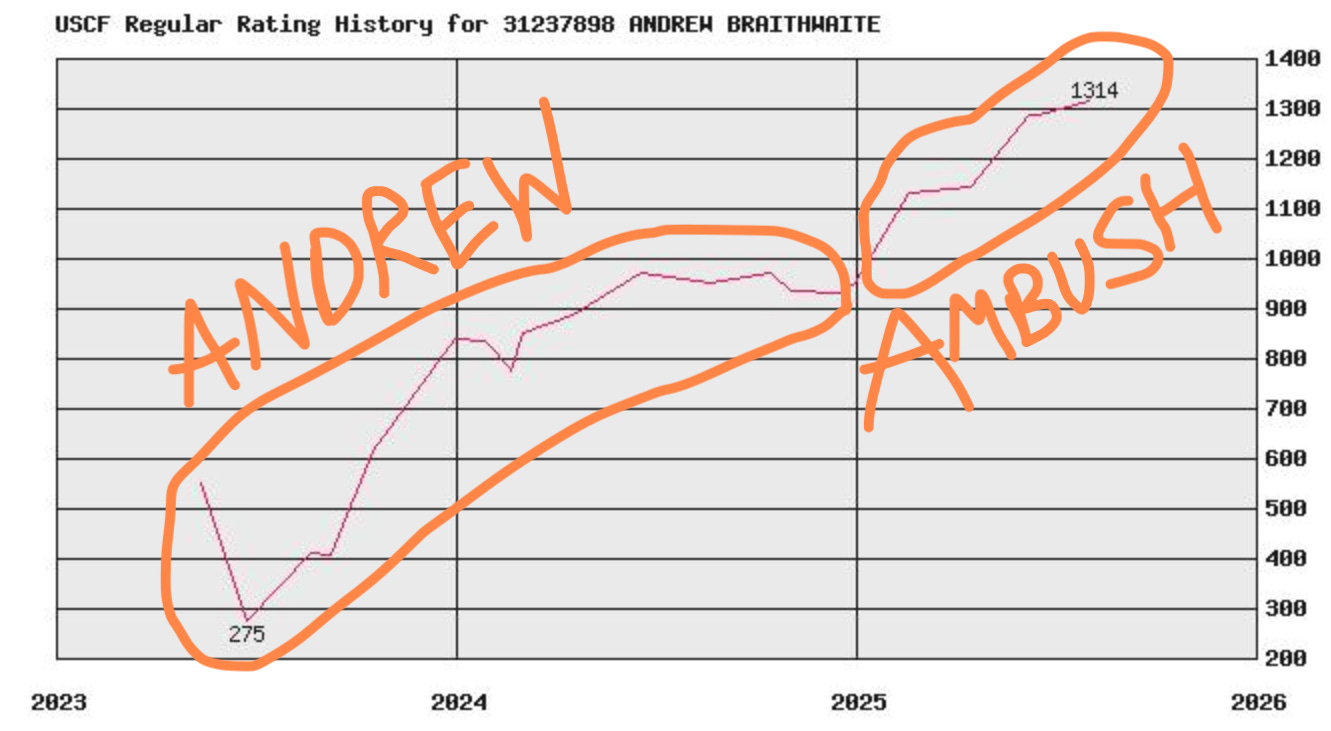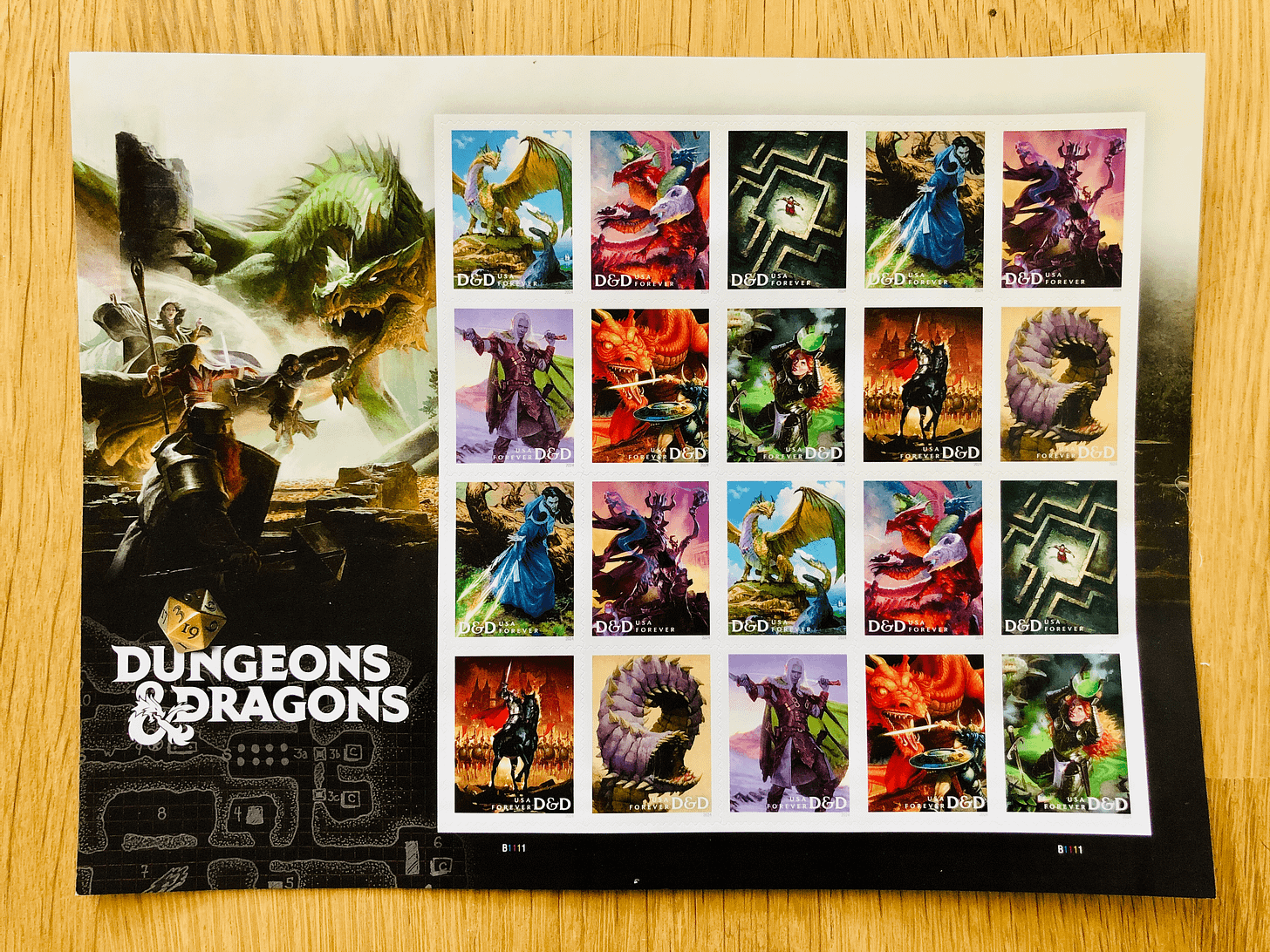Any rogue who’s stealthed the adventuring party into his share of deadly dragon lairs will tell you:
Getting in’s the easy part.
It’s the getting out when shit usually goes sideways.
This newsletter’s previous post, “Becoming a Merciless Rakshasa,” detailed how my roleplaying experience had fueled the creation of a chess-playing alter ego that I could deploy in tournament games. Summoned at the moment the chess game began, my vicious alter ego would unleash its killer instinct and play for the win; once the game ended (hopefully with a ruthless, blood-soaked victory), I could drop the alter ego and restore my kind and compassionate self.
Over the first five months of 2025, my alter ego had seen remarkable success in tournament play. I concluded my June dispatch with the following teaser:
Watch out, Las Vegas: Ambush Rakshasa will be summoned again this weekend at the National Open.
So, how’d it go in Vegas?!
Well, as we’d previously established, rakshasas are creatures fated “to corrupt the unworthy,” so Las Vegas represented a sort of all-you-can-eat buffet. Going into the final round, I’d crushed it: as one of the lowest-rated players in my section, I’d more than held my own with two wins, two losses, and a miraculous draw from a lost position that exemplified one of my alter ego’s key attributes (“fierce and extremely hard to kill”).
Since Vegas is also a numbers town, and chess is a numbers game — ratings are meant to be predictive of results — I’ll point out that my expected score was 1.0/5.0 in these games, so 2.5/5.0 was a massive over-performance.
(With a half-point bye in Rd 1 due to travel, I was officially sitting on 3.0/6.0.)
Again: credit the monster, not his creator.
Unlike a roleplaying session, when the good GM can tilt the scales a bit to help the players earn a thrilling victory, success in chess isn’t preordained. My friend John was having a tournament as rough as mine was good — a D&D 5E player himself, he described himself as having suffered “psychic damage” by the end.
(Was it a coincidence that D&D announced its new Psion class a week earlier?!)
Meanwhile, I went into my boss battle with momentum and real stakes: per National Open tradition, the winner of each final round game (draw odds for Black) gets to keep the vinyl chessboard and plastic pieces. And any player finishing with a “plus score” (ie. more wins than losses) receives a $50 gift certificate to the pop-up chess shop.
In each of my two previous chess trips to Vegas, I’d lost the last game. Playing the White pieces this time, I needed Ambush Rakshasa to bring home the win in order to secure both prizes.
On the topic of victory, please earn yourself a Hero Point by hitting that heart button up top. I have no idea what it accomplishes, but the house always wins.
My pregame routine in Vegas featured me seated in the busy hallway outside the playing hall, eyes closed and earplugs in as I meditated my alter ego into existence. Initially, I’d pictured it as something similar to the Summoner class in Pathfinder 2E — using a full-round Manifest Eidolon activity, the Summoner can concentrate to conjure “a powerful and usually otherworldly entity called an eidolon, and you can use your life force as a conduit to manifest this ephemeral entity into the mortal world.”
But here’s the thing: the Summoner and his eidolon — though they Act Together — exist side-by-side at the same time. Whereas my alter ego is essentially meant to take over at the chessboard, supplanting my normal self for the duration of the game.
Fantasy roleplaying warns us repeatedly of the dangers of deploying many types of questionable magic, especially those that touch darker parts of the good-vs-evil spectrum. And sure enough, I realized that the trick I was performing was less of a summoning ritual.
Instead, I was willingly failing my Will save against an invidiak’s possession spell.
I was letting an incorporeal shadow demon take control of my body.
This is always a wise and risk-free idea, as anyone who’s played to the end of the “Quest for the Frozen Flame” Adventure Path can attest.
Having allowed the shadow demon to take the wheel, I sat down across from my higher-rated opponent Oliver, a dour sixty-something German man from Texas who came off like the villain in some direct-to-video “Die Hard” sequel.
Defeating this odious rival would be the perfect task for Ambush Rakshasa!
I was reminded of a scene between the young chess prodigy Josh Waitzkin and his coach Bruce Pandolfini in the sublime film, “Searching for Bobby Fischer”:
Bruce: Do you know what the word contempt means? It's to think of others as being beneath you, to be unworthy of being in the same room with you.
Josh: I don’t feel that.
Bruce: Well, you'd better start. Because if you don't think it's a part of winning, you're wrong.
My battle versus Oliver was tense from the opening move: an Alapin Sicilian where I — like young Waitzkin — couldn’t resist the coaxing of Vinnie (Laurence Fishburne’s park-chess hustler) to bring out my queen on move 4.
I was better early on, paralyzing my opponent’s development with multiple pins. But I blinked and missed the trend-shift when Oliver equalized, then didn’t realize until it was too late that I’d fallen behind.
I gave up a pawn for activity, and just like in Waitzkin’s final showdown in the film, I temporarily sacrificed my queen … only to win back Oliver’s queen a few moves later with a killer knight fork.
Vinnie: There it is!
Mistakes were made by both sides — I missed a bishop move to skewer his queen and win a rook — but by now the game had descended into a street fight. I was glad it was Ambush Rakshasa holding the switchblade, and not me.
Nearly four hours into the contest, we reached the moment of truth: Black’s pawn was one square away from promotion, and I didn’t have much time to calculate a decision. Most of the other games in my section had finished, and I could see from the corner of my eye some of my friends from my home club Mechanics’ Institute watching at a distance. I studied this position and found a tactic that I thought stopped the pawn:
My move, Nxb5?!, almost works, with the idea that d1=Q Rd6+ picks up the new queen. But in fact, it fails to the simple Qxd6 Nxd6 Rxb2! — transforming the position into a winning exchange-up endgame for Black.
Even more devastating is a move I found while Oliver was thinking: Re6! blocks my rook’s path back to d1. This is why I needed to play Rd6+ first, temporarily sacrificing the rook and then winning it back after a killer knight fork — just like I’d done earlier with the queen.
I began praying to the goddess Caissa for Oliver to miss it.
I wanted to win so, so badly.
Oliver grabbed his rook and slid it back towards his king … stopping on e5, one square short of victory.
My prayers had been answered. He’d blundered right back!
(For a full move-by-move accounting of my game, you can check out this video review by Grandmaster Jesse Kraai on the Chess Dojo Twitch channel.)
This time, Ambush didn’t miss the chance (“tactically disciplined and decisive”), capturing the pawn after Rd6+ and liquidating the minors. Oliver let the rooks get traded off, too, at which point I knew I was winning the king-and-pawn endgame.
We were well into the fifth hour of play by this point — the last game still going in my section, surrounded by empty tables where various victors had long ago carried off their hard-earned boards-and-pieces. I paused to take a breath and pop a cinnamon-flavored Altoids mint from my jacket pocket, and spotted my friend and training partner Dominic still watching the endgame from a safe distance.
Dominic had been Ambush Rakshasa’s first ever victim, and so he knew the purpose of feeding cinnamon to my alter ego: I was harnessing sense-memory, powering Ambush up to bring home the full point.
Oliver played on for another 30 moves. Finally, with my pawn’s promotion to a queen inevitable, he stopped the clock. “Fine, that’s enough,” he said gruffly, storming off without signing my scoresheet.
Ambush Rakshasa had done it. We’d won!
And that’s when the shadow demon vacated my body, and I broke.
If the “afterdrop” of my first victory against Dominic had produced an emotional gash in the hull of the ship, my salvation versus Oliver unleashed a tsunami of overwhelming feelings. My head dropped to the table and I covered up with both arms to conceal the sobbing that poured forth.
Reflecting afterwards, I realized this important difference between immersive roleplaying in Pathfinder versus chess: the former generally takes place in someone’s apartment, surrounded by sympathetic friends who are in on the deal.
When we get together to play Pathfinder, part of the small miracle is the safe space we create for things to get weird.
At a large chess tournament, held on the Las Vegas strip in the 1000+ capacity ballroom of the Flamingo Hotel, there’s a problem: nobody quite understands why that forty-something man is crying.
They don’t know that his corporeal body has been suddenly and violently relinquished by the murderous shadow demon formerly inhabiting it. How could they?
It reminds me of what we sometimes see in tennis, at the precise moment when a player wins the final point to clinch a Grand Slam title: collapsing to the court in stunned relief, almost as if they’ve been shot.
I think it’s because the best tennis players pull off a similar trick, silencing their egos for the entirely of a tournament run and not allowing themselves to consider the title won until it’s truly theirs.
Thankfully, the Flamingo ballroom was relatively empty by the time I lost my grip on emotional control. I remember thanking Caissa over and over again for answering my prayers — a good cleric’s gotta make his proper rituals of devotion — and wondering if this event I was experiencing was wholesome or troubling?
In the days and weeks that followed, I landed on wholesome: why pursue competition if not for the chance to work hard and produce rich emotional experiences in huge moments of accomplishment?
But I will admit to still feeling a bit unsettled by the whole thing.
All of this is to say that my ongoing experiment involving roleplaying at the chessboard remains a work in progress. But what progress! I am currently ranked in the top 25 per cent of active tournament chess players in America — since I created my alter ego seven months ago, I’ve gained 363 USCF rating points, including 146 from the National Open in Las Vegas alone.
Trust me when I tell you that is … rather a lot.
After ten minutes of arm-cave seclusion following my win over Oliver, I finally felt steady enough to lift my head. A few Grandmaster games were still in progress at the far end of the ballroom, but I was otherwise all alone. I packed up my hard-won board and pieces and exited the hall, marking my game result on the scoreboard to finish on 4.0/7.0 and picking up my $50 credit for the chess bookstore.
I went out into the hallway and spotted my friend Dominic waiting a ways off. A quick check in the players’ bathroom confirmed that my eyes were still a little red, but not disturbingly so.
Dominic gave me a high five. He said that when he’d seen me pop the cinnamon Altoids, he’d known that I had victory in the bag.
We went to the bookstore and I cashed in my winnings: I bought two new pairs of lucky chess socks, a copy of Bobby Fischer’s book “My 60 Memorable Games,” and a stuffed chess piece to bring home to my daughter.
Thank you, shadow demon. We’ve got one more tournament game tonight at the home club, and then you can take the rest of the summer off. Go ahead: treat yourself.
THE MINI AND THE DICE
Easily the largest (and softest) mini to ever appear in a thumbnail image on this newsletter, that handsome girl sitting atop my commemorative National Open board is Chessnut the dark knight, spoils of my 4.0/7.0 score in Vegas and now the proud property of my scholastic-chess-monster-in-training.
(I decided on the Black knight over the White knight. Sometimes you gotta live dangerously.)
Fun detail: I had already selected my chess socks and Fischer book, which amounted to $40 of my $50 credit. The stuffed knights did not have a price marked, so I brought one up to the old patzer running the merch store.
“How much for the cute stuffy?” I asked.
“He goes for $15.”
“Oh,” I said. “I only have $10 left.”
The guy smiled. “Well, then. For you — today — he goes for $10.”
Vegas, baby. Vegas.
NEW FROM THE WAREHOUSE
Thanks to OG tabletop pal Ian for sharing this fun find to our Pathfinder group text last week: a limited-edition USPS stamp sheet celebrating the 50th anniversary of Dungeons & Dragons. Released a year ago and still available online and in select postal branches, the Forever stamps feature some truly iconic monsters — my favorite is the purple worm, which is accurately described in the Monster Manual as a “gargantuan monstrosity.”
(That awesome selvage image of an adventuring party battling a green dragon is from the box cover of the D&D Starter Set.)
That’s it for this month, or as GothamChess likes to put it: get out of here. And so, as I say at the end of every Pathfinder module I run: this has been Ambush Tactics. I’ve been your Game Master. I hope you had a fun time.
Adventure!



